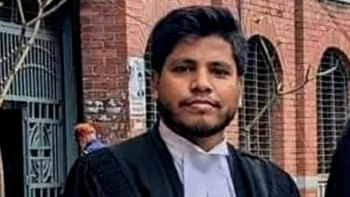Germany seeks to deepen business ties with India

German Chancellor Olaf Scholz arrived in India on Saturday seeking to deepen business ties between the world's number four and five economies and push for progress on an EU trade deal despite differences over Ukraine.
"We want to further strengthen our bilateral relationship with India and our cooperation on global issues, such as mitigating climate change and transforming our economies in a just, green and sustainable way," Scholz told the Times of India in an interview.
"There is huge potential for intensified cooperation, in sectors such as renewables, hydrogen, mobility, pharma, digital economy, and many more," Scholz told the paper.
Scholz, accompanied by executives from big German firms like Siemens, met Prime Minister Narendra Modi in New Delhi and was due to head to Bengaluru to visit German software firms including SAP.
Officials said Scholz would press for progress towards a trade deal between the European Union and India that has long been held up by disagreements on tariffs and access for Indian workers to Europe.
A German official in Berlin said the two sides remain "quite some distance apart".
"Some people want to complete this by the end of this year. Others say that even summer next year is ambitious," the official said on condition of anonymity.
The two sides also differ on the Ukraine war, with India refusing to condemn Russia's invasion and ramping up purchases of oil from its biggest supplier of arms.
"If we want to work together effectively on global challenges, we need a solid, reliable and rules-based international order. Attacking your neighbour, seizing territory by force, committing terrible war crimes, cannot be tolerated," Scholz said in the interview.
"With India we share the foundation of democracy and the respect of international law. Together, we stand for state sovereignty and peaceful conflict resolution worldwide," he said.
Scholz, 64, also said the Group of 20 should not ease up on pressuring Russia during India's current presidency and continue to send a "strong message".
Germany, France and Britain on Friday insisted that any final statement from a meeting of G20 finance ministers in Bengaluru due to wrap up on Saturday must also condemn Russia's war.
A second German official said that behind the scenes, India was using "clear words" in its discussions with Russia to show that New Delhi is not happy about the conflict.
"Last autumn in a meeting with (Russian) President (Vladimir) Putin, Prime Minister Modi expressed himself in a very pronounced way: '(This is) no time for war'," the official said.
It was unclear whether Scholz would raise concerns about minority and media rights in the world's biggest democracy during his talks with the Hindu nationalist premier.
Last week Indian tax officials raided the local offices of the BBC in an action rights groups linked to a documentary by the British broadcaster about Modi's role in deadly sectarian riots in 2002.
The Indian government denied the two were linked.


 For all latest news, follow The Daily Star's Google News channel.
For all latest news, follow The Daily Star's Google News channel. 



Comments